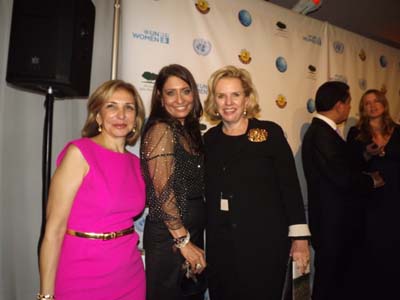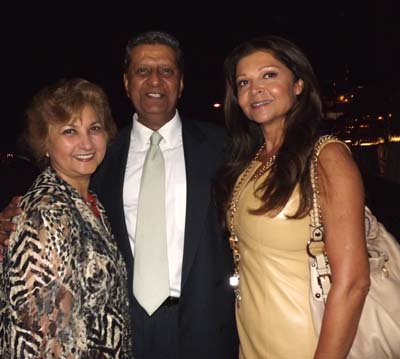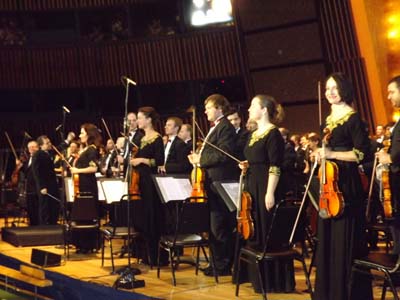|
Celebrity Philanthropy News
1
2
3 |
|
E-mail this page to
your friends |
Black Tie
International:
Celebrating the 66th Presidency of the UN General Assembly
and Supporting UN Women
|
|
 |
|
The President of the General Assembly, His Excellency
Mr. Nassir Abdulaziz Al-Nasser and Mrs. Muna Rihani
|
|
The 66th Presidency of the United Nations
General Assembly
&
Supporting UN Women Celebration
June 6, 2012
Photos by: Black Tie Magazine
Story
to Post Shortly!
|
|
 |
|
H.E. Mr. Ban Ki-Moon,
Secretary-General of the United Nations, Mrs Ban Soon-taek,
and H.E. Mr. Nassir Abdulaziz Al-Nasser, President of the
United Nations General Assembly |
|
 |
|
Ms. Michelle
Bachelet, Executive Director of UN Women |
|
 |
|
Ms. Mira Sorvino,
United Nations Goodwill Ambassador |
|
 |
|
Ms. Michelle
Bachelet, Executive Director of UN Women and
Ms. Mira Sorvino, United Nations Goodwill Ambassador |
|
 |
|
H.E. Mr. Nassir
Abdulaziz Al-Nasser and his adorable son Aziz |
|
 |
|
Ms. Haya Khalifa Al
Nassr, Director of Communication,
Qatar Foundation, Abdula Thuraya, and Gabriella von
Langendorf |
|
 |
|
Qatar Philharmonic
Orchestra |
|
 |
|
H.E. Mr. Nassir
Abdulaziz Al-Nasser and Barbara Winston |
|
 |
|
Tas and Amir Dossal |
|
 |
|
Mrs. Muna Rihani,
H.E. Mr. Nassir
Abdulaziz Al-Nasser &
Mira Sorvino |
|
 |
|
H.E.
Mr. Nassir Abdulaziz Al-Nasser with
Dick and Donna Soloway |
|
 |
|
Michael and Eleanora
Kennedy |
|
 |
|
Joyce Brooks and
Bruce Winston |
|
 |
|
Gerard McKeon |
|
 |
|
Olivia Torney Flatto
and Thomas Knapp |
|
 |
|
Mrs. Muna Rihani, |
|
 |
|
Mrs. Muna Rihani, Ms. Mira Sorvino, Baya Bensmail and
Eleanora Kennedy |
|
 |
|
Paula Bacehini and
Janna Bulock |
|
 |
|
Kevin M. Cahille,
Ambassador Anne Anderson, Permanent Representative of
Ireland to the United Nations and Gerard McKeon |
|
 |
|
Tas and Amir Dossal |
|
 |
|
Ziggy and Tsipi Ben-Haim |
|
 |
|
Ahmed Fathi and
Sawsan Abdelfaiah |
|
 |
|
Ambassador Palitha
T. B. Kohona,
Permanent Representative of Sri Lanka |
|
 |
|
Olivia Flatto,
Aghmie Abirafeh, Dina Deluca Chrtouni |
|
 |
|
Tas Dossal, Cecile
Rodhe, Everard Findlay, Joyce Brooks |
|
 |
|
Sarah Mangun
and Baya Bensmail |
|
 |
|
Sarah Mangum,
Ambassador Palitha
T. B. Kohona,
Permanent Representative of Sri Lanka
and Yelana Noah |
|
 |
|
Shahid Husain, Joyce
Brooks and Mehdi Mirafzl |
|
 |
|
Ben Block, Hani
Ahmadi, Tooraj Zahedi and
Nassrin Romlooz-Zahedi |
|
 |
|
MS. Ugoji
Adanma Eze, Esq. President and CEO,
Eng Aja Eze Foundation. Aena L. Konde
|
|
 |
|
Wendy
Diamond, Arthur Pergament |
|
 |
|
Richard Turley and
Chan Giang Thi Nguyen |
|
 |
|
Katherine Venice,
Barbara Winston, Amir Dossal and Joyce Brooks |
|
 |
|
Mustapha Tlili,
Yelana Noah, Amir Dossal,
Sarah Magnum, Edward Findlay |
|
 |
|
Happy Anniversary..... |
|
|
UN Women
In July 2010, the
United Nations General Assembly
created
UN Women, the United Nations
Entity for Gender Equality and the
Empowerment of Women.
In doing so, UN
Member States took an historic step
in accelerating the Organization’s
goals on gender equality and the
empowerment of women.
The creation of UN
Women came about as part of the UN
reform agenda, bringing together
resources and mandates for greater
impact. It merges and builds on the
important work of four previously
distinct parts of the UN system,
which focused exclusively on gender
equality and women’s empowerment:
-
Division for
the Advancement of Women (DAW)
-
International
Research and Training Institute
for the Advancement of Women (INSTRAW)
-
Office of the
Special Adviser on Gender Issues
and Advancement of Women (OSAGI)
-
United Nations
Development Fund for Women (UNIFEM)
The main roles of
UN Women are:
-
To support
inter-governmental bodies, such
as the Commission on the Status
of Women, in their formulation
of policies, global standards
and norms.
-
To help Member
States to implement these
standards, standing ready to
provide suitable technical and
financial support to those
countries that request it, and
to forge effective partnerships
with civil society.
-
To hold the UN
system accountable for its own
commitments on gender equality,
including regular monitoring of
system-wide progress.
Meeting the Needs of the World’s
Women
Over many decades,
the UN has made significant progress
in advancing gender equality,
including through landmark
agreements such as the Beijing
Declaration and Platform for Action
and the Convention on the
Elimination of All Forms of
Discrimination against Women (CEDAW).
Gender equality is
not only a basic human right, but
its achievement has enormous
socio-economic ramifications.
Empowering women fuels thriving
economies, spurring productivity and
growth.
Yet gender
inequalities remain deeply
entrenched in every society. Women
lack access to decent work and face
occupational segregation and gender
wage gaps. They are too often denied
access to basic education and health
care. Women in all parts of the
world suffer violence and
discrimination. They are
under-represented in political and
economic decision-making processes.
For many years,
the UN has faced serious challenges
in its efforts to promote gender
equality globally, including
inadequate funding and no single
recognized driver to direct UN
activities on gender equality
issues.
UN Women was
created to address such challenges.
It will be a dynamic and strong
champion for women and girls,
providing them with a powerful voice
at the global, regional and local
levels.
Grounded in the
vision of equality enshrined in the
UN Charter, UN Women, among other
issues, works for the:
www.unwomen.org
The Qatar Foundation
Founded in 1995 by His Highness Sheikh Hamad Bin Khalifa
Al Thani, Amir of Qatar, and co-founded and chaired by Her
Highness Sheikha Mozabint Nasser, the Qatar Foundation
exemplifies the vision of helping create a sustainable
knowledge-based society and with the mission of unlocking
human potential.
Qatar’s journey from
a carbon economy to a
knowledge economy
Qatar Foundation for
Education, Science and Community
Development (QF) aims to support Qatar
on its journey from a carbon economy to
a knowledge economy by unlocking human
potential.
It was established in
1995 by His Highness the Amir Sheikh
Hamad bin Khalifa Al-Thani. His wife,
Her Highness Sheikha Moza bint Nasser,
is the organization’s chairperson and
driving force.
Qatar National Vision
2030
Qatar National Vision
2030 was published in July 2008 and
outlines how the nation will use its
vast revenues from hydrocarbon resources
to transform itself into a modern
knowledge-based economy.
The people of Qatar
are the key to achieving this aim, so
the plan places developing human
resources as the main priority for the
next 20 years.
National Vision 2030
gave QF an exciting mandate: to be the
‘engine’ driving the development of
Qatar’s people, with the headline aim of
‘Unlocking Human Potential’.
Qatar Foundation’s
Three Pillars
QF aims to unlock the
human through its three pillars of
Education, Science & Research and
Community Development. This will benefit
not only Qatar, but the region & the
world.
It is bringing
world-class education, work experience
and career opportunities to Qatar’s
young people;
It is building Qatar's
innovation and technology capacity by
developing and commercializing solutions
through key sciences.
It is fostering a
progressive society, enhancing cultural
life and protecting Qatar’s heritage
whilst addressing immediate social needs
in the community.
All these things will
help create a forward-looking knowledge
economy for Qatar.
www.qf.org
|
|
|
|
| |
|
|
Back to Celebrity Philanthropy |
|
| |